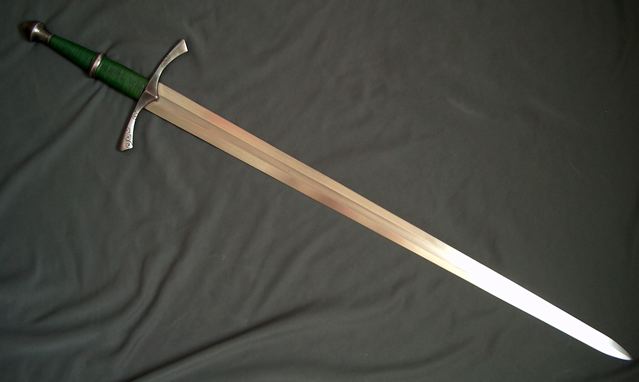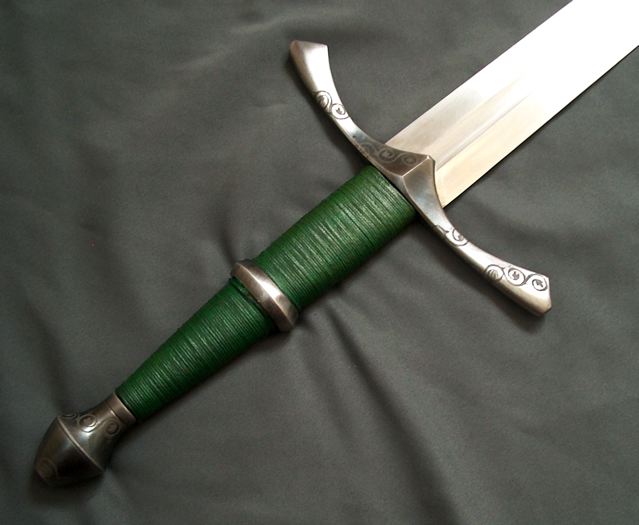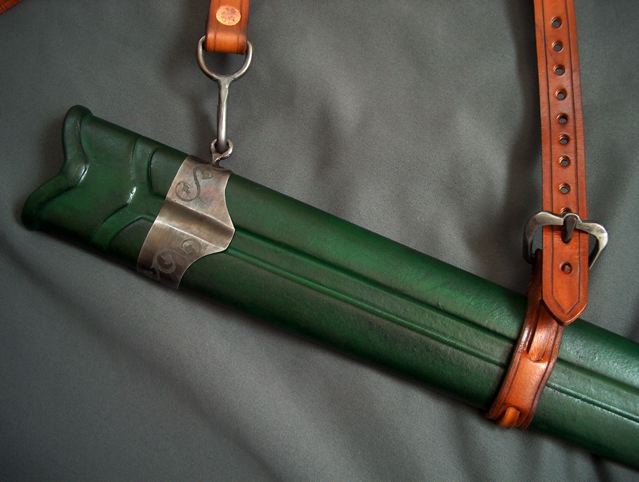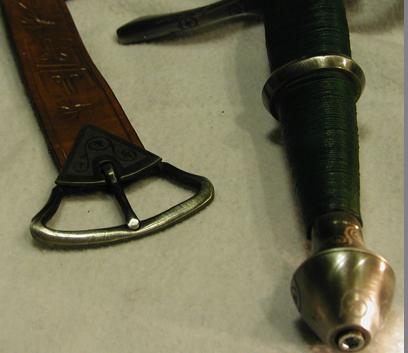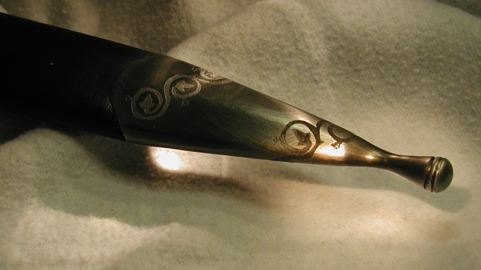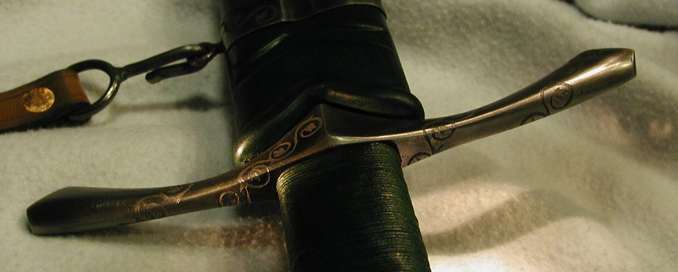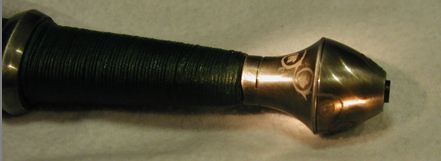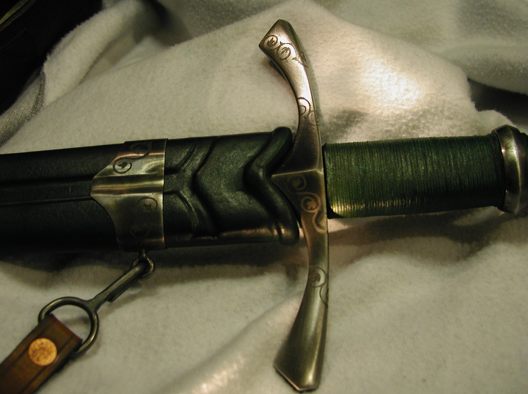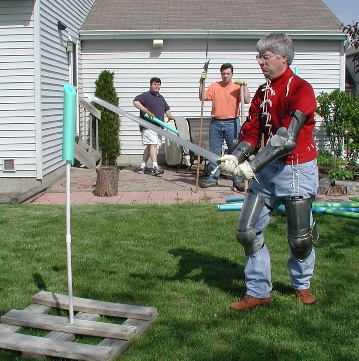It is a slightly modified version of his standard Borderwatch with the AT1313 blade. The main features are some leaf and vine etching winding around the chape, locket, guard, pommel, and on the buckle and tip of the belt. In addition, he modified the chape slightly, added a tree motif to the tooling on the belt, refined the shape of the belt buckle, and included a hand-forged buckle for the suspension. I gave Mr. Fletcher some ideas, and instructions that he should feel free to deviate as he saw fit. I told him that I was looking for an elegant, but not ostentatious, fantasy piece. One that would reflect the character's heritage, including both the human and elvish influences. I located the leaf and vine design (supposedly historical english, but origin unknown), and suggested that they might look good on the locket and winding around the chape. I don't know of any historical examples using this ornamentation. He suggested also wrapping around the pommel and the guard. I suggested maybe doing something with the buckle, but all of the updates to the belt were purely his own initiative. I think I'm going to be very pleased with the result!
I don't have it, yet, so I'll need to provide an update when I have it in hand and given it a closer examination. In the meantime, here are some pictures that CF took.
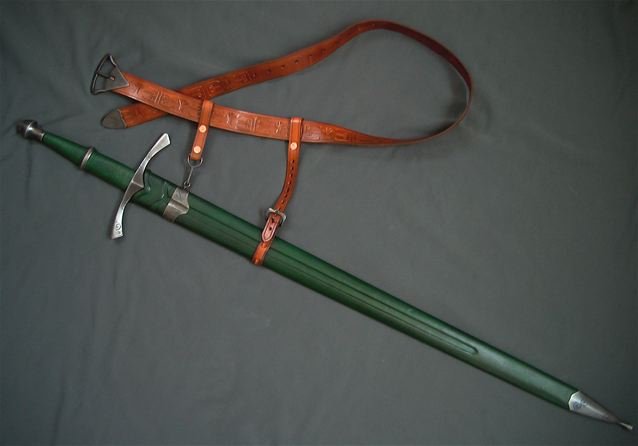
Full view
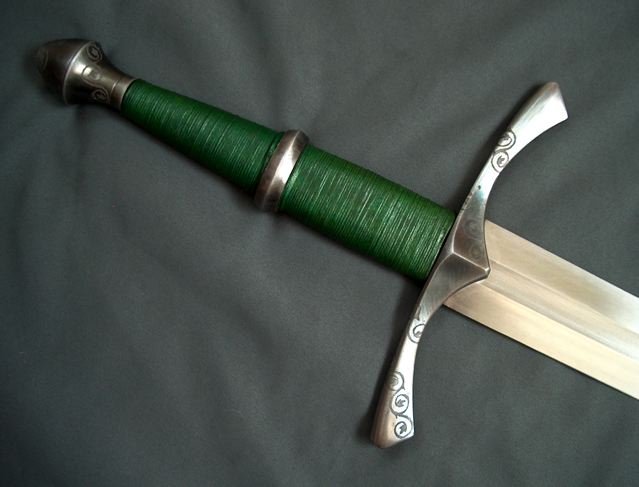
Hilt, showing vine wrapping around guard and pommel
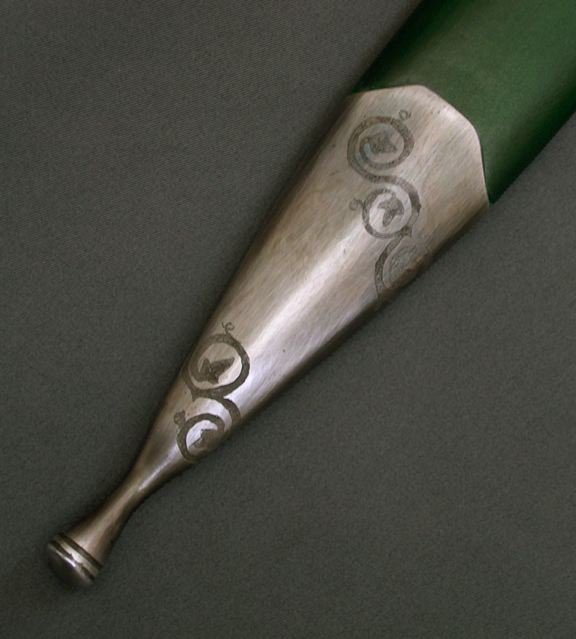
Chape, showing closer view of leaf and vine motif
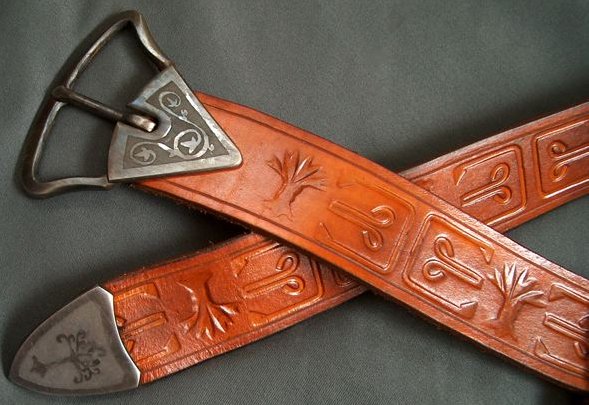
Belt, showing tree motif on tip and belt tooling, as well as leaf and vine motif on the refined buckle
